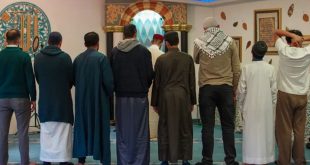Through an array of detailed case studies, this book explores the vibrant digital expressions of diverse groups of Muslim cybernauts: religious clerics and Sufis, feminists and fashionistas, artists and activists, hajj pilgrims and social media influencers.
These stories span a vast cultural and geographic landscape-from Indonesia, Iran, and the Arab Middle East to North America.
These granular case studies contextualize cyber Islam within broader social trends: racism and Islamophobia, gender dynamics, celebrity culture, identity politics, and the shifting terrain of contemporary religious piety and practice.
The book’s authors examine an expansive range of digital multimedia technologies as primary “texts.” These include websites, podcasts, blogs, Twitter, Facebook, Instagram, YouTube channels, online magazines and discussion forums, and religious apps. The contributors also draw on a range of methodological and theoretical models from multiple academic disciplines, including communication and media studies, anthropology, history, global studies, religious studies, and Islamic studies.
About the Author
Bibliographic Information
Title: Cyber Muslims Mapping Islamic Digital Media in the Digital Age
Author(s): Robert Rozehnal
Publisher: Bloomsbury Academic
Length: 344 pages
ISBN: 978-1350233690
Pub. Date: May 19, 2022
Cyber Muslims Mapping Islamic Digital Media in the Digital Age
 Ijtihad Network Being Wise and Faithful Muslim in the Contemporary World
Ijtihad Network Being Wise and Faithful Muslim in the Contemporary World

